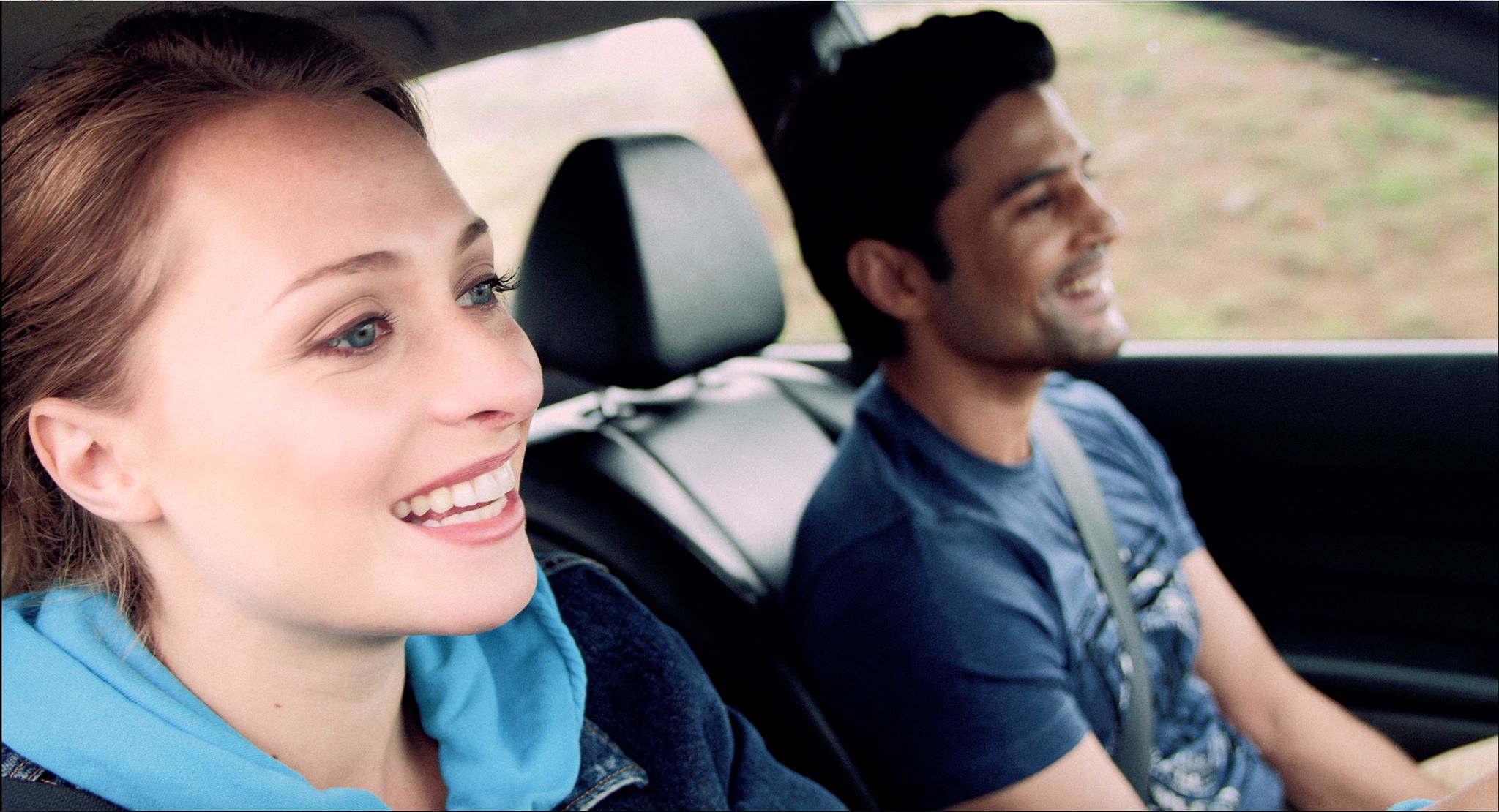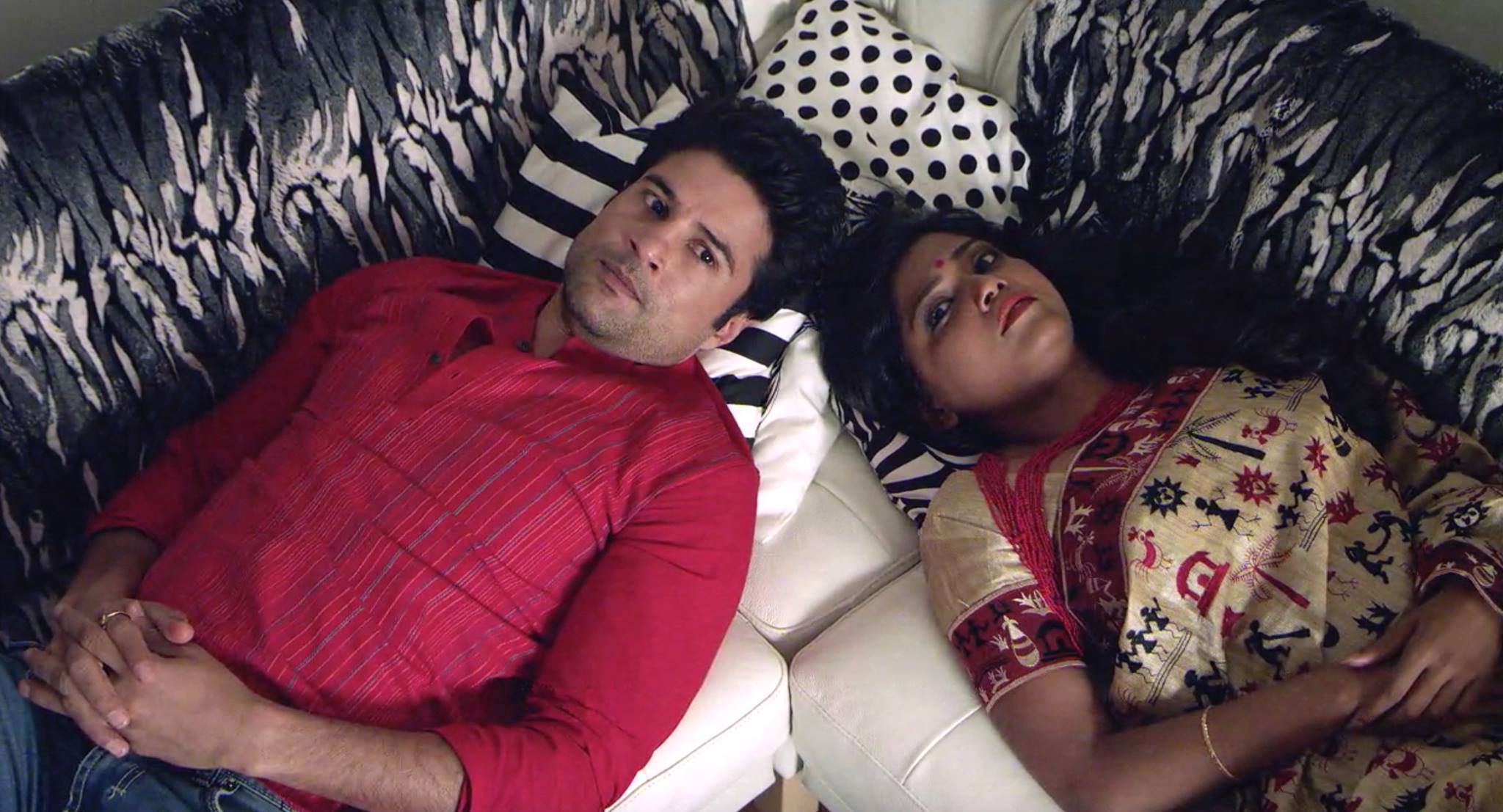SALT BRIDGE
 Thursday, January 17, 2019 at 12:46PM
Thursday, January 17, 2019 at 12:46PM Stars: Rajeev Khandelwal, Chelsie Preston Crayford, Usha Jadhav, Kaushik Das, Shoorjo Dasgupta, Adam Grant and Mayur Kamble.
Writers: Abhijit Deonath and Shvetal Vyas Pare.
Director: Abhijit Deonath.
Rating: ★★★½

Examining the Indian immigrant experience from a fresh and personal perspective, director Abhijit Deonath melds traditional male role-model expectations with contemporary relationship melodrama to largely winning affect in his debut feature, Salt Bridge. Shot entirely in Australia, with Sydney and Canberra locales doubling as the fictional township of the title, the long-in-production independent project will play well with diaspora populations, who all-too-rarely get to see their transplanted lives in a thoughtful big-screen narrative.
Most recently, of course, Garth Davies’ hit Lion (2016) cast an eye over the Indian expat existence; central to Deonath’s plot are the shared themes of memory and reconciliation with the past (though far less overtly stated here). The director introduces his protagonist, thirty-something medical researcher Basant (Rajeev Khandelwal) staring longingly from a train window, his mind revisiting a moment long ago that still consumes him. Khandelwal is terrific, exuding the soulful sensitivity of a man burdened with a dark past, yet every inch the classic Indian leading-man type (his brooding pout recalling Hollywood actor Jason Patric in his prime).
With his equally-photogenic wife Lipi (Usha Jadhav) and listless teen son Riju (Shoorjo Dasgupta) counting on him to fulfill his potential and provide for their new Australian suburban life, Basant decides to take driving lessons with instructor Madhurima (Chelsie Preston Crayford). Also immersed in the migrant life (she’s a New Zealander, married to an Indian), the pair soon bond in the most charming and innocent of ways. One of N.Z.’s most accomplished young actresses, Crayford (What We Do In The Shadows, 2014; Eagle vs Shark, 2007) and her leading man share a lovely chemistry, ensuring their developing platonic friendship is entirely believable.

Soon, their friends and then the wider Indian society take an interest in the new besties, assuming the most salacious, and Basant finds himself outcast from his community, his family and, regrettably, Madhurima. Having posed the question ‘Can a man and woman just be friends?’, Deonath dissects the issue within the broader context of the modern male’s role in Indian culture. His script (penned with the assistance of Shvetal Vyas Pare) succinctly embraces the hot-button topic of toxic masculinity and India’s patriarchal traditions, but does so through the filter of western cultural influence. If the story structure and momentum occasionally stumbles (most notably, a confusing sequence in the wake of a near-tragedy at the film’s midway point), Deonath’s skill with character and dialogue more than compensates.
Deonath drives home his gender subtext by focussing Basant’s research work on mitochondria, the power generator of any complex living cell, the existence of which is maternally inherited. The nods to modern science extend all the way to the film’s title – a ‘salt bridge’ occurs in proteins, creating a bond between oppositely charged residues that are sufficiently close to each other to experience electrostatic attraction; it is a deft, if slightly highbrow way, of defining the relationship between Basant and Madhurima.
Salt Bridge is a commercially savvy undertaking as well, including an explosively colourful Holi celebration and some neat dance moves, although it is far too influenced by its western setting to go ‘full Bollywood’. Australian viewers will be bemused by the people-free (and very green) parklands, empty highways, pristine cityscapes and autumnal suburban streets that provide the backdrop for the drama; it is a perception of life on these shores that plays well overseas, but is a bit of a stretch to those of us caught in the metropolitan crush of everyday life.
All tech aspects exceed any budgetary constraints, with the film looking lived-in and real while still seeming professionally polished in every respect. Especially noteworthy is Miguel Gallagher’s camerawork, whose eye for finding beauty is even on-song when framing the not-always inspirationally picturesque national capital.

